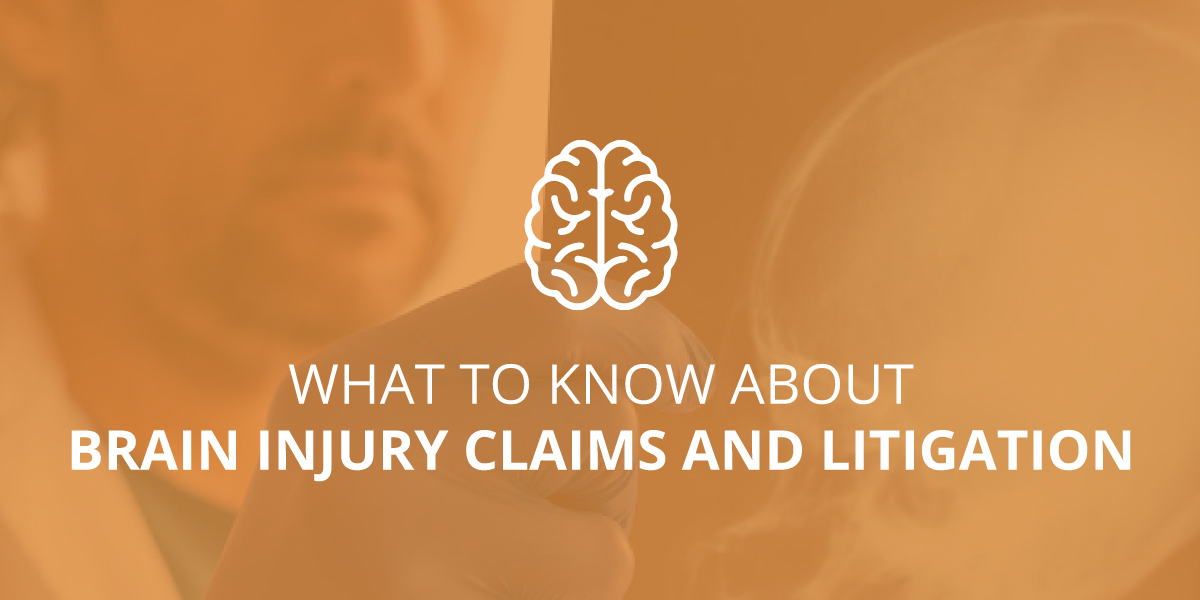Suffering a brain injury because of someone else’s negligence is traumatic. The experience isn’t improved by having to deal with insurers and the court system. But by working with an experienced Dallas brain injury attorney from Brooker Law, PLLC, you can aggressively pursue fair compensation for your injuries.
We believe it’s important for you to prepare for the duration and stress of a brain injury case. Insurers will want to go through every facet of your life—they might even claim you’re lying or exaggerating the injury. We’re here to help you gather evidence and prove your brain injury claim to the insurer, and if necessary, a jury.
Chip Brooker has years of experience handling traumatic brain injury claims and will fight hard for you to receive the compensation you deserve.
Continue to See Your Doctor
When a doctor diagnoses you with a brain injury after an accident, it’s important to be completely honest with your doctor about your physical, mental, and emotional symptoms. Only by being honest about everything you’re experiencing can your doctor document your brain injury symptoms in your medical records. The more comprehensive your medical records, the better for your brain injury claim.
It’s also important to continue with follow-up care. A minor TBI—a concussion—can heal in a matter of weeks but it may also lead to chronic post-concussive syndrome. Some (even purportedly minor) brain injuries take months or years to recover from. You should continue to see your doctor to document your symptoms.
Your doctor can’t necessarily speed up your recovery, but they can offer treatments for specific symptoms. Documenting your condition and continuing to receive necessary care are both helpful in proving your brain injury to an insurer or in court.
Ask About Neuropsychological Testing and Neuroimaging
Proving a TBI or other brain injury in court is challenging because it’s not something the jury can see unless you also have a visible skull fracture or other bodily injuries. Jurors might have a hard time believing what they can’t see, which is why it’s important to talk with your doctor about ways to document your brain injury.
One way to prove you have a brain injury is through neuropsychological testing, which is a thorough evaluation of abilities linked to brain function, including attention, memory, and problem-solving skills. It’s given by a licensed clinical psychologist or neuropsychologist, who will write a detailed report regarding your condition and their treatment recommendations.
Another step is to ask about neuroimaging. CT scans and MRIs are important to show significant brain injuries, like hemorrhages or hematomas, that need immediate medical intervention. But they can’t show subtle damage in the brain.
More advanced neuroimaging techniques can offer more information, though. Diffusion Tensor Imaging, Susceptibility Weight Imaging, and NeuroQuant are three options that might provide concrete proof of a brain injury.
Talk with Your Doctor About Your Cognitive Reserve
A serious issue associated with brain injuries is a loss of cognitive reserve, which is a term used to denote your brain’s resilience to injury. The more cognitive reserve a person has, the more likely they are to recover from brain injuries fully. A loss of cognitive reserve makes you more susceptible to dementia or Alzheimer’s Disease in the future.
Your cognitive reserve is an important factor in evaluating your future medical needs and costs, and your attorney will consider it when calculating the value of your claim.
Ask Relatives, Coworkers, and Friends to Be Witnesses
When proving you’re suffering from a brain injury, it helps to talk about what you were like before and after the accident. Brain injuries can change your personality, cognitive capabilities, physical capabilities, mental health, and much more. It helps to have people who know you well testify about the differences they can see in you during everyday life.
It’s particularly important to ask for other people’s opinions because a brain injury can cause you to lack self-awareness. What this means is you might not be able to tell how you’ve changed. You might not realize you’re having a hard time remembering things or paying attention to a task for more than a few minutes at a time.
Hire a Medical Expert
One of the best ways to establish your brain injury is to work with an expert. Your treating doctor will connect you with someone who has years of education, training, and experience regarding diagnosing and treating brain injuries. Insurers have a harder time arguing with an expert opinion, and jurors take an expert’s testimony seriously.
Expect Your Case to Take a Long Time
There’s no quick and easy way to resolve a brain injury claim. It takes months of documenting and treating your injury to understand your damages fully. We would never try to push you into a fast settlement because it wouldn’t cover all of your injuries, including your future medical costs and pain and suffering.
Work with an Experienced Attorney
Recovering full and fair compensation for a brain injury can be challenging, but you stand a far better chance with the help of an experienced brain injury lawyer in Texas. An attorney from Brooker Law, PLLC, will be prepared for an insurer’s underhanded tactics. They’ll know how to gather evidence of your brain injury to prove your case and win you compensation.
We recommended getting started on your serious personal injury claim as soon as possible. Contact Brooker Law, PLLC at (214) 217-0277, or submit your information through our online contact form. We offer free initial consultations.
